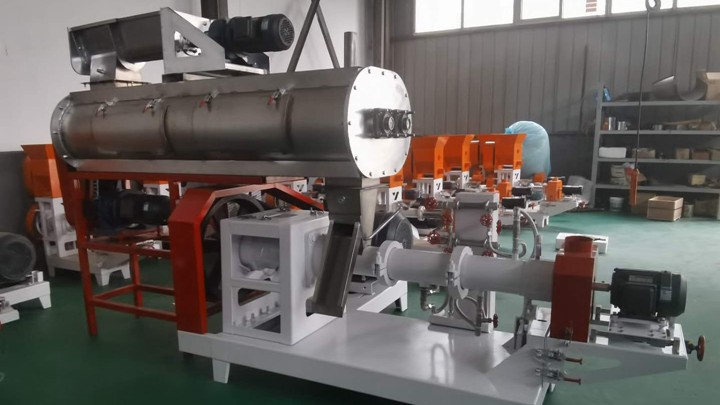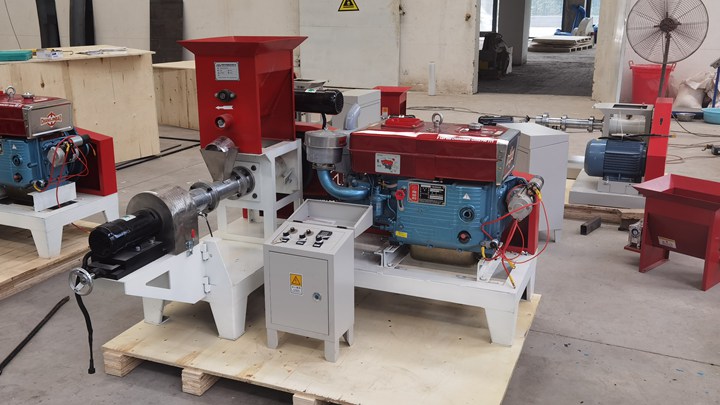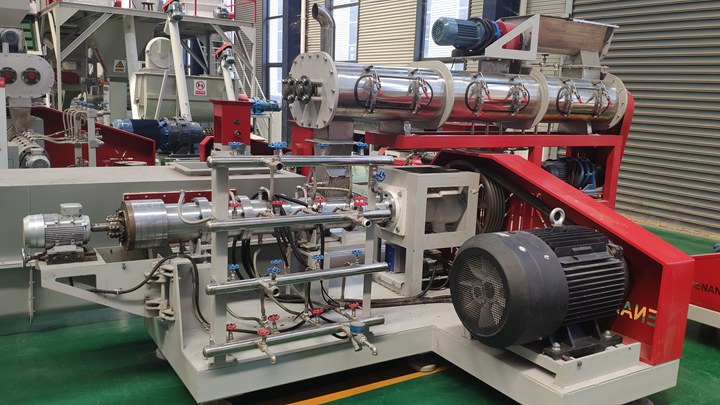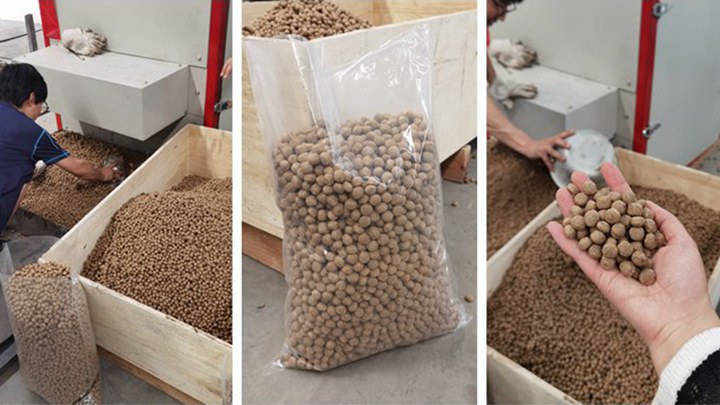.jpg)
Adults. Algae, bacteria, detritus, duckweed, other plants. Because tilapia feed on food sources that are lower on the food chain, they do not have issues with mercury concentration like higher-level predatory fish, such as swordfish, pike, halibut, and albacore. Tilapia have the potential to be a highly sustainable food resource.

factory Tilapia fish pellet mill Tanzania-floating fish feed Floating Fish Feed Making Machine for Tanzania Fish FarmingInitially, the Tanzania customer sent us an inquiry. He sai Tel:+8619337889051

Jul 18, 2022 · In Thailand, tilapia are stocked at three fish/m2 and grown to 100-150 g in about three months with fertiliser alone, and then given supplemental feeding at 50 per cent satiation until the fish reach 500 g. Net harvest averages 14 tonnes/ha, which is equivalent to a net annual yield of 21 tonnes/ha.
.jpg)
In Thailand, a typical feed formulation for herbivorous fish may include fishmeal (16 percent), peanut meal (24 percent), soybean meal (14 percent), rice bran (30 percent), broken rice (15 percent) and vitamin/mineral premixes (1 percent) (Somsueb, 1994). Some examples of farm-made feed formulations for tilapia at various life stages under semi

Jan 01, 2008 · TILAPIA FEED AND FEEDING IN SEMI-INTENSIVE CULTURE SYSTEMS. 718. account for over 25% of corn production in 2007 (National Corn Growers. Association,2008). In 2004, the production of moist corn
.jpg)
Jan 01, 2009 · Fisheries is an important food production sub-sector, providing almost 20% of the world's protein supply; however, the trend in fish production from capture fisheries has reached its limits due to
.jpg)
Pisces has been manufacturing Tilapia processing since 1987. Pisces provides a complete line to produce fillets and gutted fish. The Pisces line takes whole live fish and produces a finished graded product. The Pisces production line has been developed over the year by continues input from our customer. The Pisces production line uses numerous
.jpg)
Tilapia aquaculture is a diverse and rapidly changing industry, and it has to meet challenges that include drought, zoning regulations, shifts in market size, losses to local carnivorous species and more. Working with Cargill helps you plan more effectively for the future and achieve sustainable business growth that benefits both you and your
.jpg)
Matching feed supply and demand is an underpinning principle of pasture-based dairy farming in New Zealand. Information about feed management on dairy farms including seasonal management, production systems, supplements, crops and pasture types.
.jpg)
tilapia fish feed processing line manufacturers/supplier, China tilapia fish feed processing line manufacturer & factory list, find best price in Chinese tilapia fish feed processing line manufacturers, suppliers, factories, exporters & wholesalers quickly on LimaFeedPelletizer.com.

Apr 09, 2021 · 5. Collect all fry after 21 to 25 days, and transfer the breeders into separate conditioning tanks again. 6. Feed the fry in the nursery tank with powdered mash feed at 40% of body weight daily at first and then reducing to 10 to 20% at fingerling size. Divide the daily food ratio into 3 to 4 feedings a day.
Feeding Tilapia. Tilapia species are easy to feed and will accept most food sources. They will thrive and breed on most diets and can without problems be kept on nothing but pellets. It is however as always beneficial to offer them a more varied diet. Avoid feeding your tilapia to fat food like pork since this will harm the fish and may cause
.jpg)
Advantages of our floating fish feed extruder machine 1. This pet food extruder is widely used for producing floating feed pellets of all kinds of aquatic animal. 2. Advanced technology and humanized design ensures easy operation and reliable performance. 3. High efficiency, low power consumption 4.

High quality Pet Tilapia Fish Fish Feed Production Line With Different Mould 30kw High Efficiency from China, China's leading fish feed processing line product, with strict quality control fish food processing line factories, producing high quality fish food processing line products.
.jpg)
Nov 15, 2013 · Farms within each survey region tended to share similar production methods, but each region differed in system design ().Although our sample was oriented around carp and tilapia producers, a striking outcome of the survey was the large number of other species also raised in these systems—31 different species farmed in total (see Appendix Table 2).